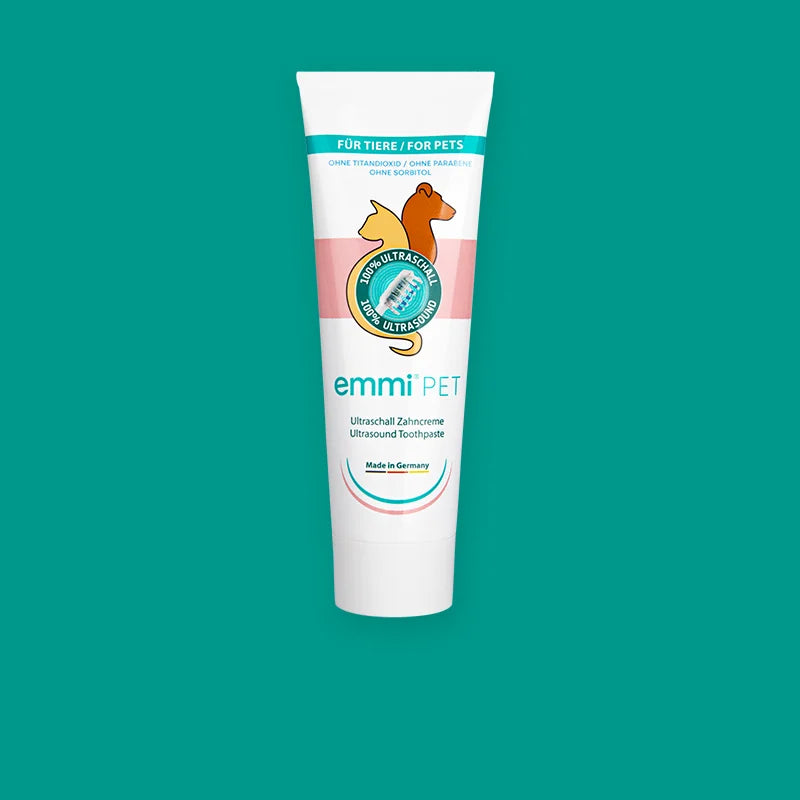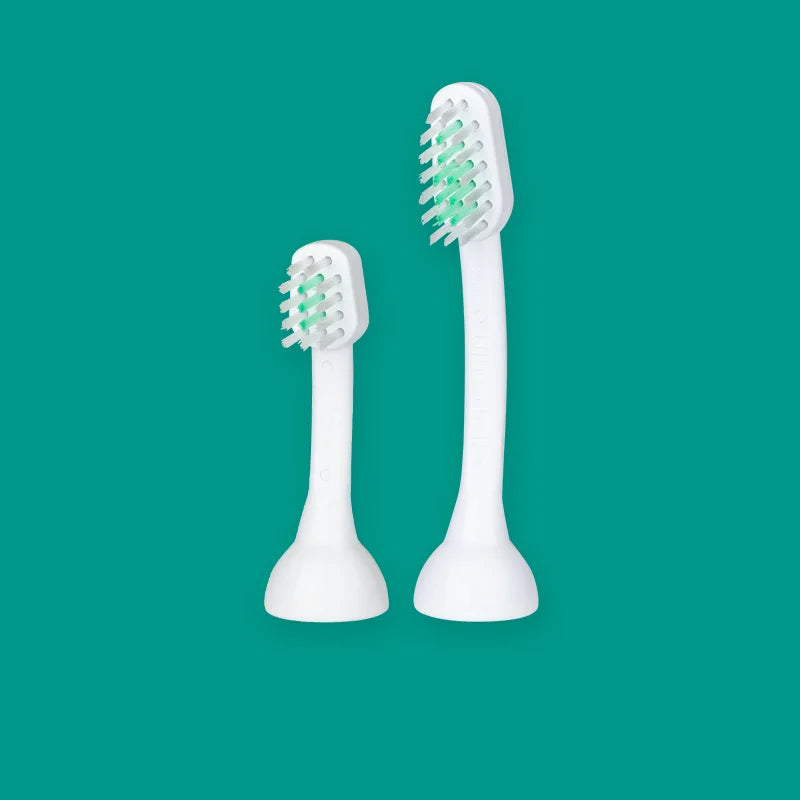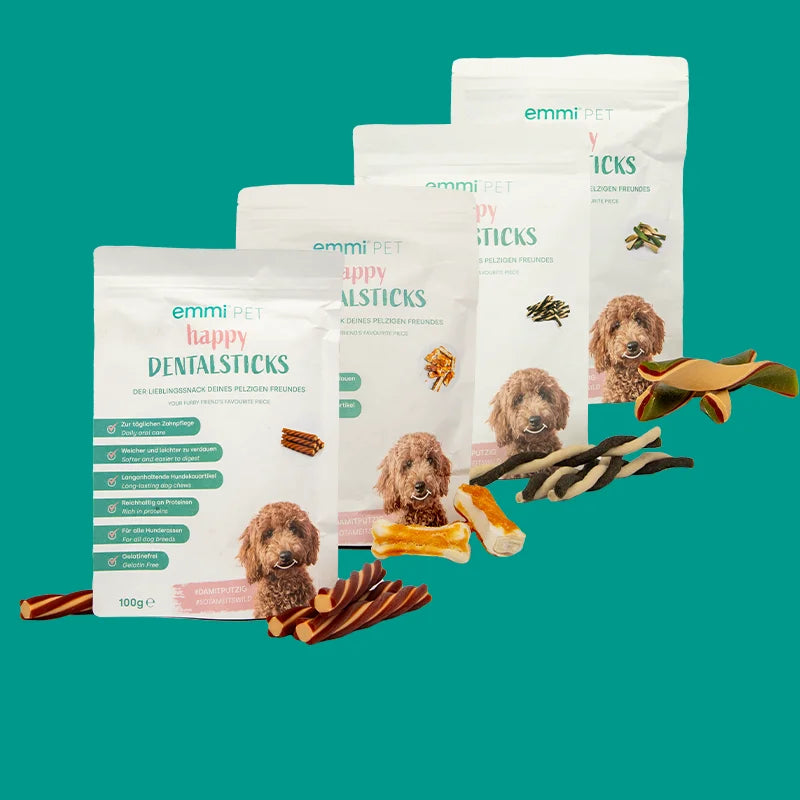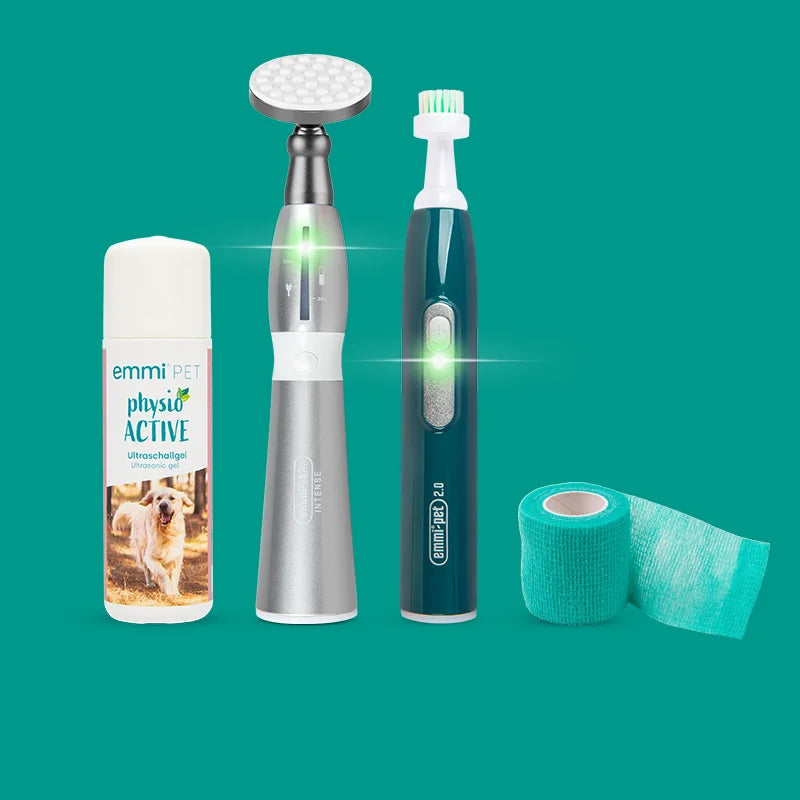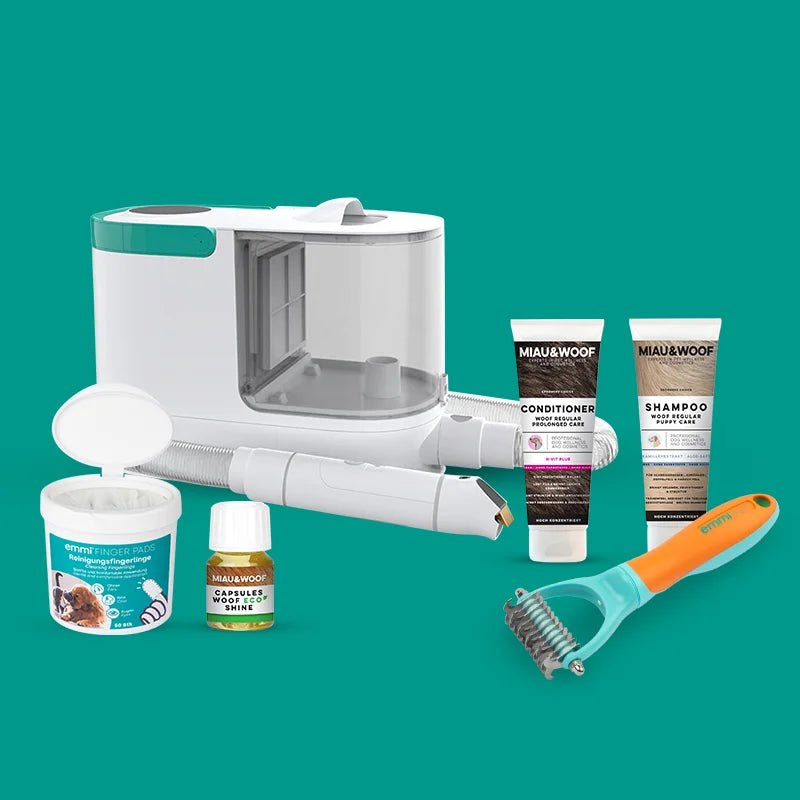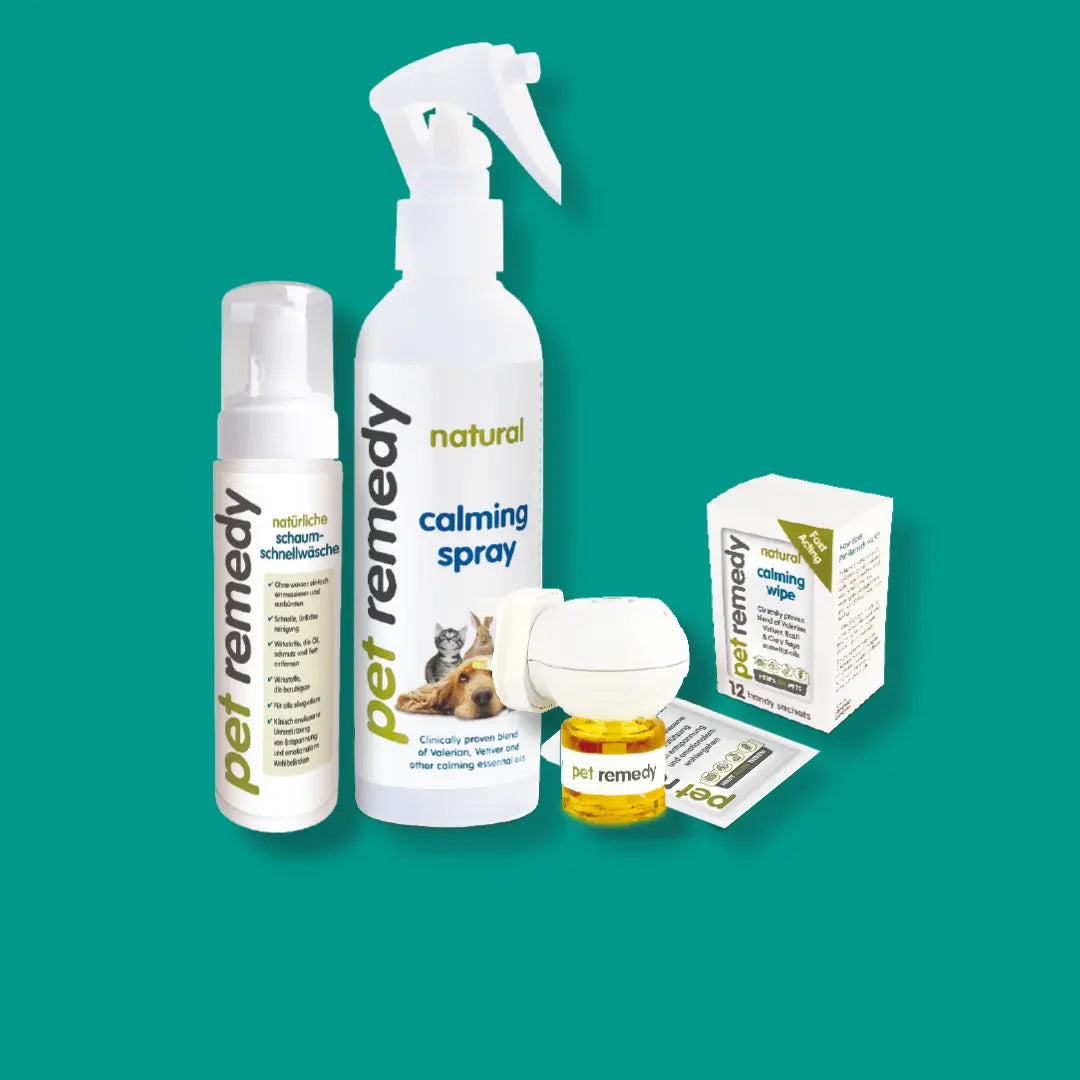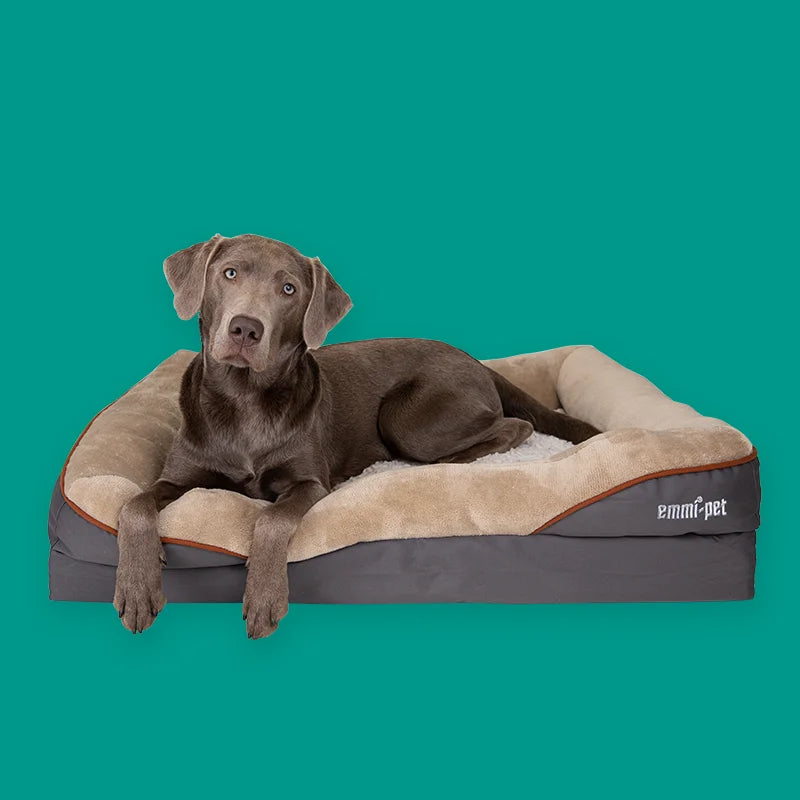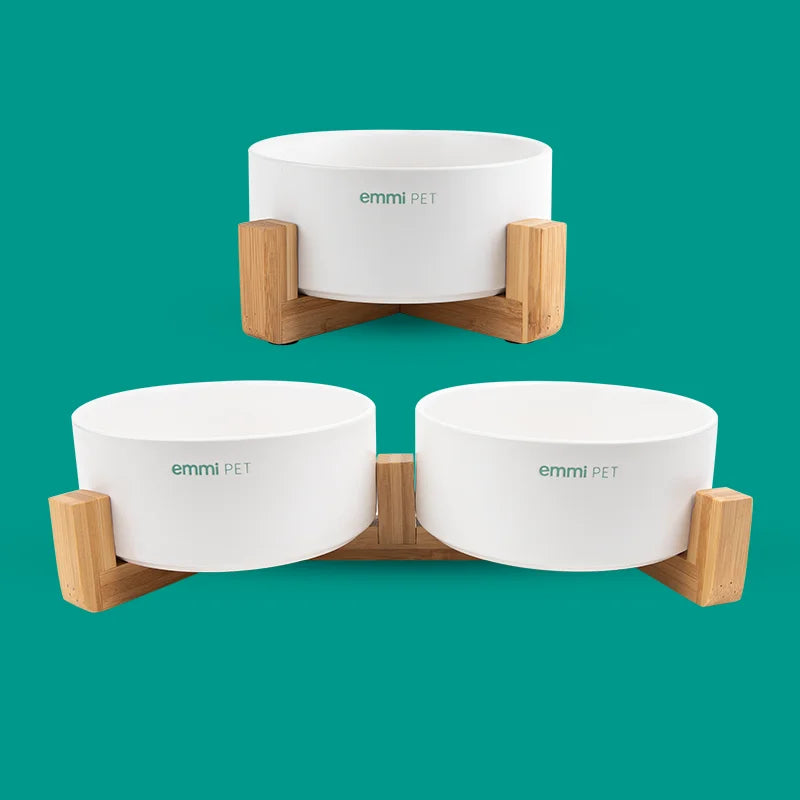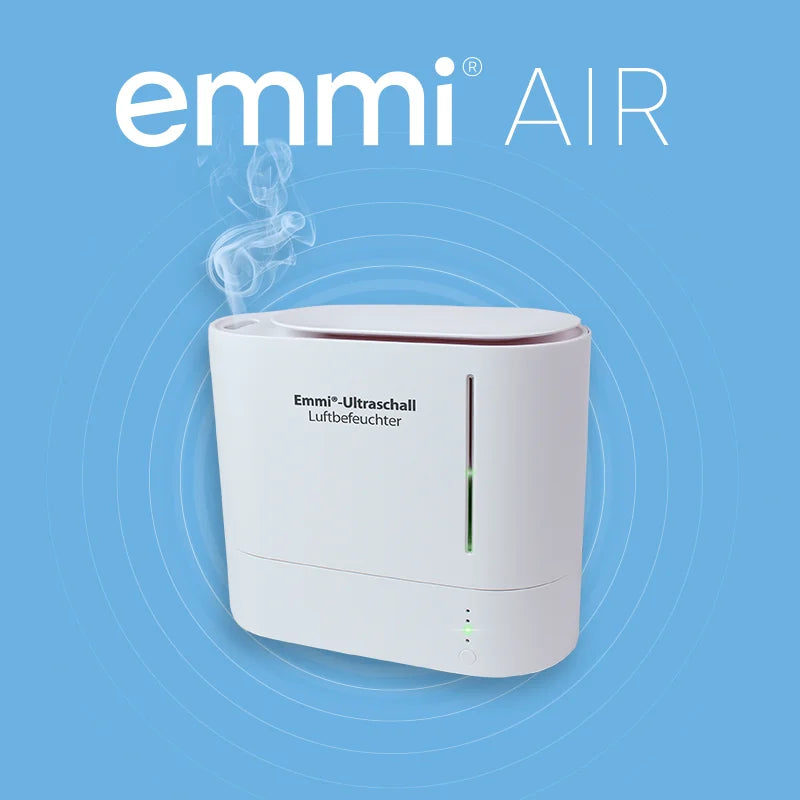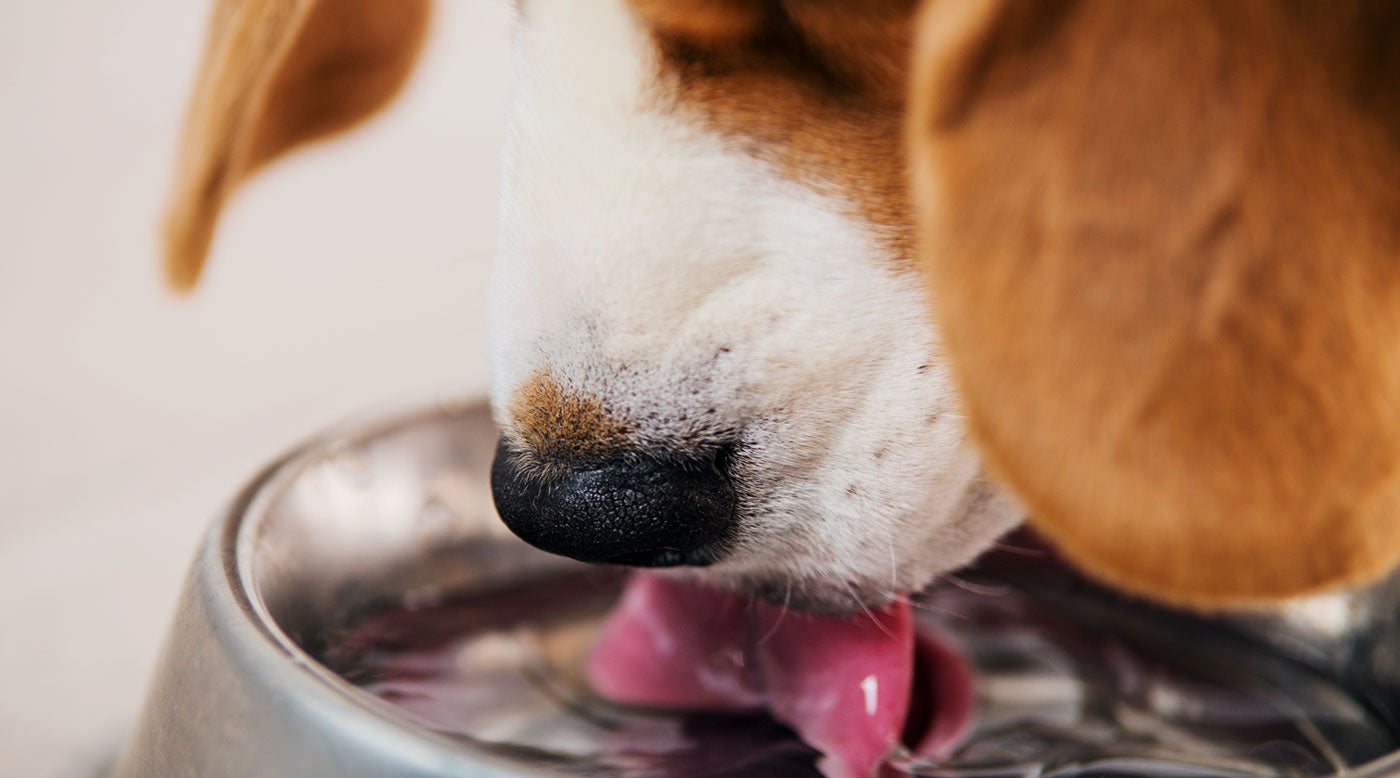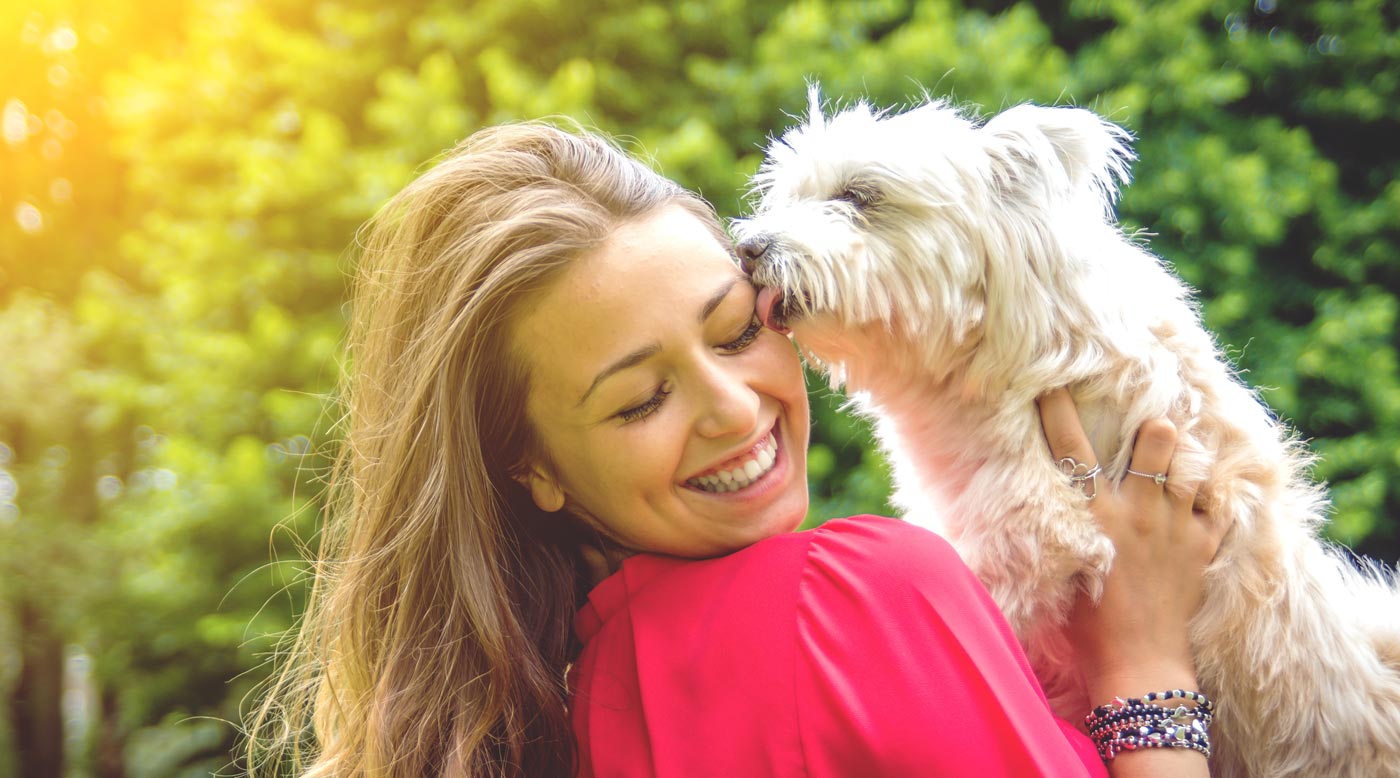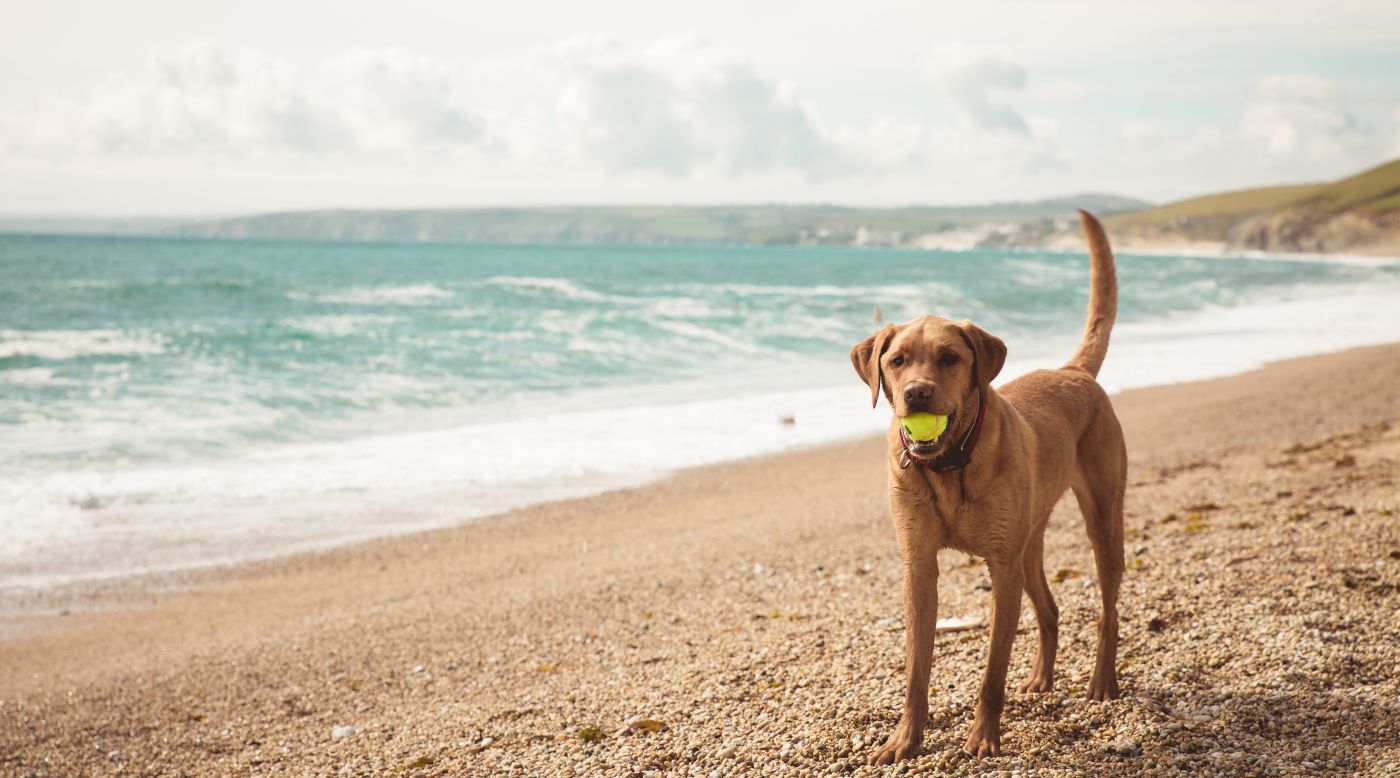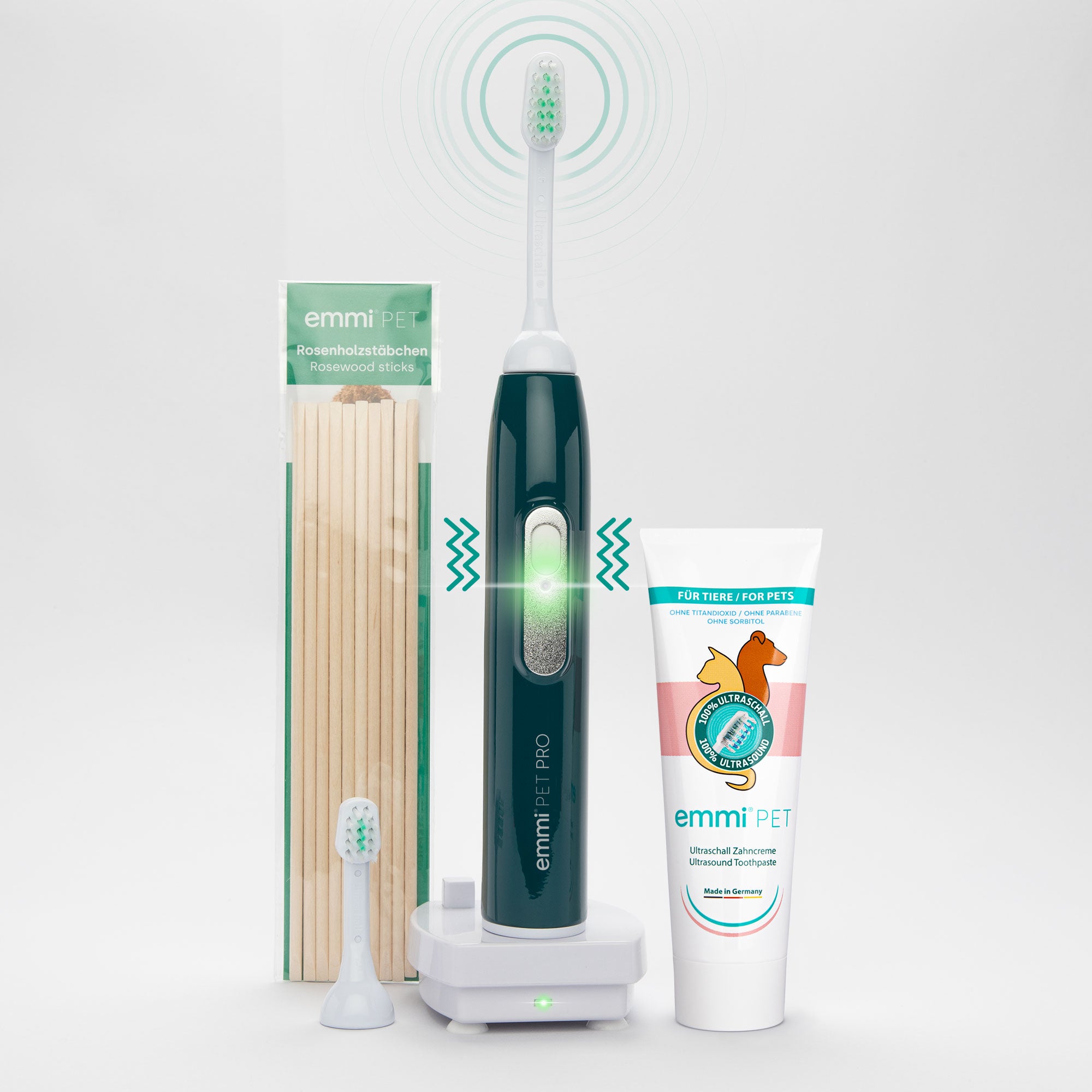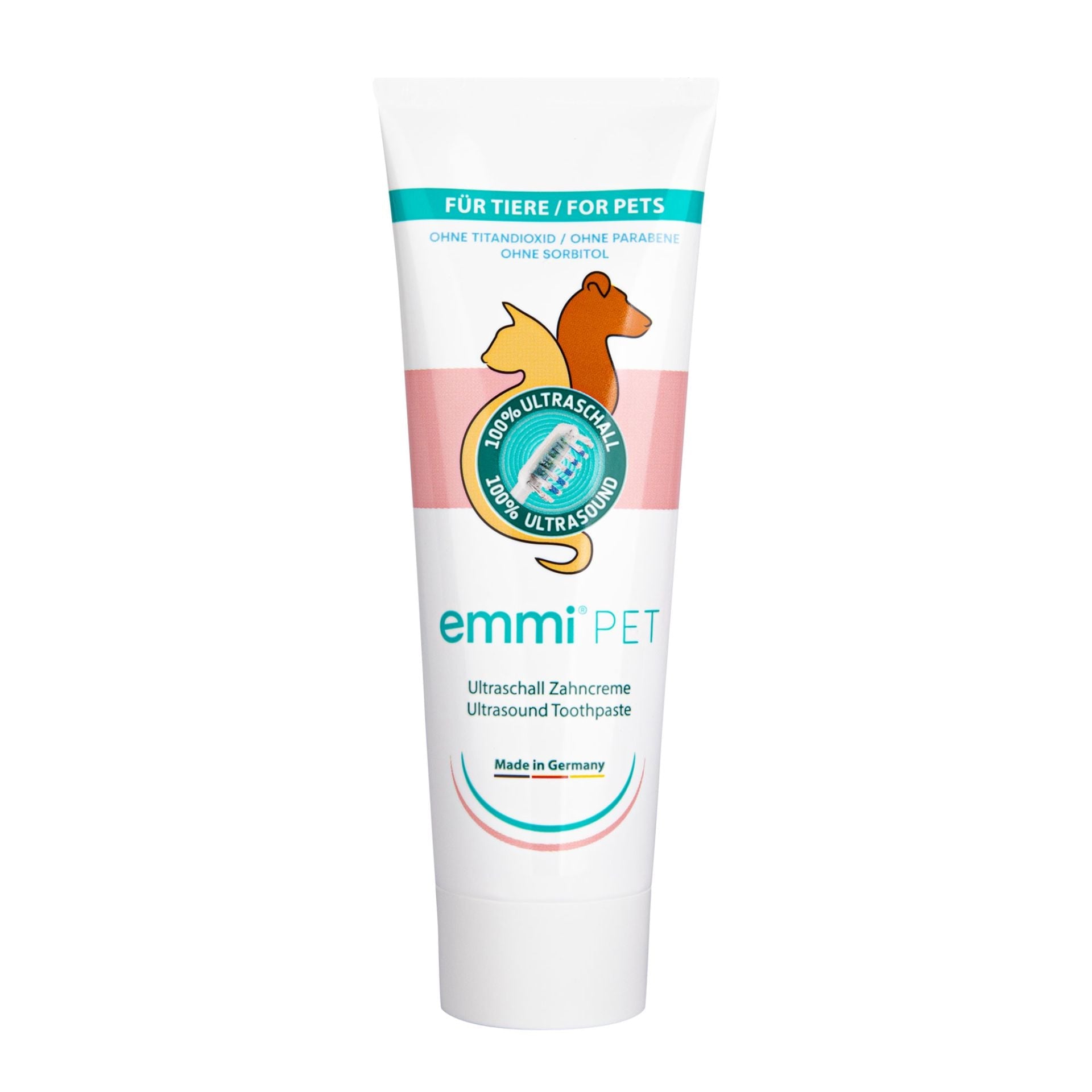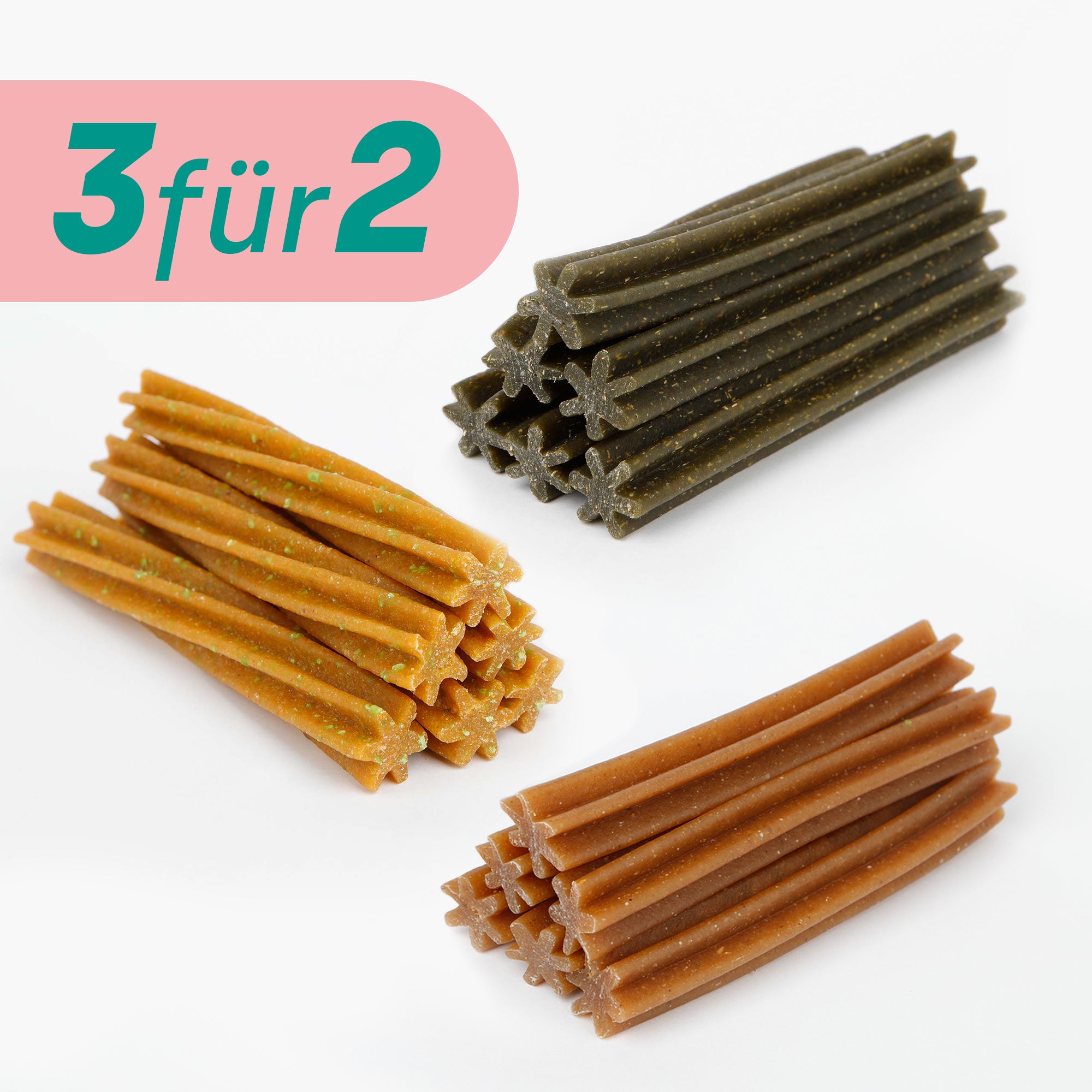The sun is high, the air is shimmering, your dog lies panting in the shade, but the water bowl remains almost untouched. What seems like harmless summer behavior can have serious consequences. Paradoxically, many dogs don't drink enough in hot weather. A phenomenon that not only strains their circulation but also disrupts the delicate balance in the mouth.
Especially when the body is increasingly dependent on fluids, the natural thirst impulse in some dogs diminishes. The result: saliva flow dries up, the body's natural cleaning of the mouth slows down, and bacteria can multiply unhindered. Tartar forms more quickly, the gums become more susceptible to inflammation, and an unpleasant odor develops, sometimes even leading to tooth loss if care is neglected for a long time.
Saliva is much more than just a bit of moisture. It acts like the body's own protective film: It washes away food residue, neutralizes harmful acids, and keeps mucous membranes supple. If this system becomes unbalanced due to dehydration, the consequences often first become apparent in your dog's breath and oral health.
Especially in summer, when additional water is lost through panting, the risk of an imbalance in the oral flora is particularly high. Therefore, it's crucial not only to actively encourage water intake but also to consistently adjust dental care. This way, you'll not only protect your dog's breath, but also his overall oral health and well-being. We'll explain the best way to do this in this article.
Is my dog drinking enough? Interpreting subtle signals correctly
It's not always immediately obvious that a dog isn't drinking enough fluids. But their body communicates. Quietly but clearly. Pay attention to subtle signs that your four-legged friend needs more water. A dry nose can be an early sign, as can the absence of fine threads of saliva when yawning. Dehydration can also be noticeable in the mouth itself.
Typical signs of incipient dehydration are:
- visibly dry or sticky gums, a whitish coated tongue or food residue that is not swallowed as usual
- Frequent panting even during rest periods, less enthusiasm for playing and an overall sluggish movement behavior
- noticeable bad breath that seems more intense than usual, even though nothing has changed in food or routine
If you notice one or more of these signs, you should take action. Summer heat not only puts a strain on your dog's circulation, but also causes his oral flora to become unbalanced more quickly. With timely support, you can effectively protect his health and ensure a fresh, well-cared-for mouth.
How to encourage your dog to drink
A balanced fluid balance is crucial for your dog's health, especially in the warmer months. But not every four-legged friend drinks enough on their own. The good news: With a few simple changes in your daily routine, you can positively influence your dog's drinking habits.
Instead of actively forcing your dog to go to the bowl, focus on new stimuli and attractive offers. Place several water bowls in different, easily accessible locations. This could be in the garden or in his favorite spots. Sometimes a change of scenery is enough to pique his interest.
A particularly effective tip: Add a splash of unsalted broth to the water. The familiar scent encourages many dogs to drink. Moisturizing food or water-rich snacks like unsweetened watermelon (seedless and in small amounts) can also provide valuable fluids.
Interactive drinking solutions like drinking fountains or portable travel bowls, which can be used on the go, provide variety. They make drinking not only more practical but also more exciting, transforming it from a chore into a welcome refreshment, even on hot summer days.
Dental care despite summer fatigue, especially gentle and effective
If your dog chews less in high temperatures, saliva flow decreases, and the first signs of changes in the mouth appear, a well-thought-out dental care routine is especially important. Especially in the warmer seasons, a method that effectively cleans without causing additional stress is recommended.
Our emmi-pet ultrasonic toothbrush meets precisely these requirements. It cleans without friction, pressure, or noise, making it ideal for heat-weary or sensitive dogs. Its high-frequency air vibrations penetrate deep into the interdental spaces and remove bacterial plaque where conventional brushes can hardly reach – without any resistance or discomfort for your four-legged friend.
More than just fresh breath – what else you should consider in summer
Oral health doesn't end with the toothbrush. Especially in the summer months, it's worth considering the topic holistically. Many factors operate in the background. Often unnoticed, but with noticeable consequences. A change in feeding schedule while on vacation, unfamiliar treats from the table, or summer snacks with sugar or artificial flavors can quickly throw the sensitive oral flora out of balance. Psychological stress, such as travel, heat, or new sleeping areas, can also inhibit saliva flow and thus promote bacterial growth.
Short-headed breeds like pugs, French bulldogs, and Shi Tzus often have problems with mouth care in the summer. Due to their narrow teeth, limited drinking habits, and sensitivity to heat, they require particular care. A customized routine with a narrow brush head and cooling rest periods is useful and almost essential.
If you have a puppy, now is the perfect time to introduce dental care in a playful way. Summer offers ideal conditions: more time, a relaxed atmosphere, and delicious toothpastes that facilitate positive first experiences. And no matter whether your dog is a puppy, a senior, or a sensitive four-legged friend, certain equipment, including our emmi-pet ultrasonic toothbrush, suitable toothpaste, natural dental sticks, and a drinking bottle with a bowl, should be standard in dog care.
Because in the end, your dog's health is often reflected where you can see, smell, and feel it: in his mouth. This makes it all the more important to take a close look and act consciously.
FAQ: Fluids & dental health in dogs in summer
Questions about bad breath in dogs during the warmer months often arise: What is normal? What should I be concerned about? And how should I react?
In our FAQ, you'll find the most frequently asked questions – clearly answered, expertly informed, and practical. This way, you'll be well prepared to give your dog fresh breath and healthy teeth, even on hot days.
Why is drinking so important for my dog's dental health?
Saliva has a natural cleansing function in the mouth. It flushes out bacteria, neutralizes acids, and protects gums and mucous membranes. If there's too little fluid, the oral mucosa dries out—and this promotes the formation of plaque, tartar, and inflammation.
How do I know if my dog isn't drinking enough?
Warning signs include a dry nose or mucous membranes, increased panting, dark urine, or a generally lethargic demeanor. Noticeably harsh breathing can also indicate an imbalance in the mouth.
What can I do if my dog shows no interest in water?
Try to make the water more interesting—for example, with a splash of unsalted broth or by slightly moistening the food. Drinking fountains, mobile water systems, or setting up multiple water bowls can also be helpful.
Are there any skincare products that work even when there is little saliva?
Yes. The emmi-pet ultrasonic toothbrush works without friction and doesn't require active saliva flow to clean effectively. Remedy also helps with dry mucous membranes with soothing, nourishing ingredients.
Can a dental care plan work without a lot of chewing?
Absolutely. Especially in summer, when many dogs have less of an appetite for hard snacks, gentle grooming with ultrasound or special oils is ideal. Make sure the grooming is stress-free and done regularly—this is crucial for its effectiveness.

